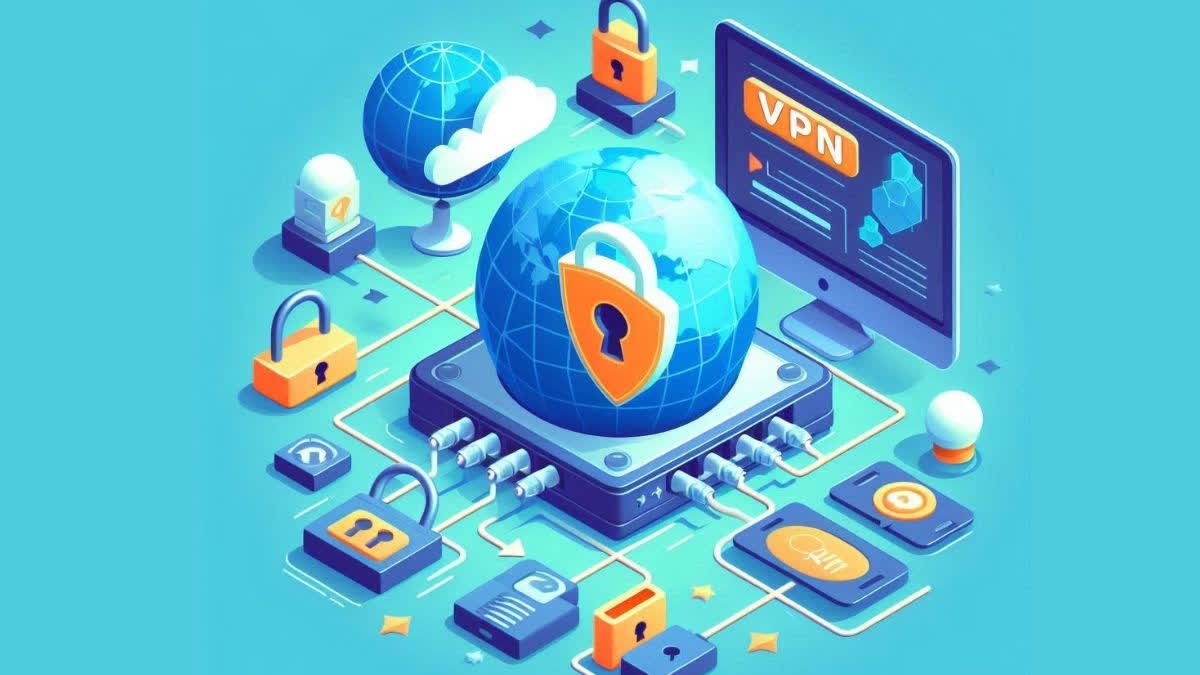Hyderabad: Pakistan's top body of clerics has declared the use of virtual private networks (VPNs) against Islamic laws as the service enables people to evade state-enforced content regulation or censorship, reported AP. Raghib Naeemi, chairman of the Council of Islamic Ideology, stated that Shariah permits the government to halt actions spreading "evil", emphasising that platforms posting controversial, blasphemous, or anti-national content should be immediately stopped.
In February 2023, Pakistan blocked access to Elon Musk's social media platform X, but citizens can still access it via a virtual private network. VPN services come across as the best tool to access services and information blocked by the authorities as they help escape censorship by masking their IP address and hiding their internet activity. However, this is not the only case in which a virtual private network can be used.
Uses of a virtual private network
A VPN is mostly used for privacy and security. It helps protect your online identity from scammers and escape intrusive monitoring from unwanted parties. It helps protect your personal data while being connected to a public Wi-Fi service in places like hotels, airports, cafes, and more.
A VPN also allows office workers and college students to access their work or university networks remotely from anywhere in the world without compromising on security. You can also access photos and files on your home/office computer from anywhere in the world.
In recent times, VPNs have also found a use in saving money while booking services online as they help bypass region-based price hikes. Since the IP address masking aspect of a VPN service lets users bypass censorship, it often comes under the government heat.
Ban/Restrictions on VPN services in the world
Since VPNs help people get around government-induced restrictions, it is only fair that agencies don't like people using virtual private networks. While some countries prefer to ban the service outright, others restrict their functions or introduce compliance requirements.
Countries like Belarus, Iraq, North Korea, Oman, and Turkmenistan have banned VPN services, whereas countries like China, Egypt, India, Iran, Russia, Turkiye, UAE, and Uganda only permit VPN services after they follow government-induced guidelines. Meanwhile, the UK and the USA may subject VPNs to scrutiny for national security and law enforcement or allow intelligence agencies to collect communication data in bulk.
VPN compliance requirement in India
In the case of India, VPNs are allowed, but there are some restrictions in place since April 2022, which include data retention, KYC verification, and compliance requirements.
Under these regulations, VPN companies are required to retain user data for five years, including usernames, phone numbers, and activity logs. This requirement does not go away even if a user cancels their subscription or deletes their account. However, the government clarified that customer logs aren't required for enterprise or corporate VPNs.
VPN companies must also perform a know-your-customer (KYC) verification process for user sign-ups. Additionally, VPN companies must submit user data to the CERT-In (Computer Emergency Response Team) upon request. Providers that go against these rules could face up to a year of jail time.
In the face of these restrictions, several VPN service providers decided to shut down their servers in India, calling these regulations incompatible with their no-logging policies and commitment to user privacy. Meanwhile, the Indian government considers it necessary to curb cybercrime. The government also sought global action against technologies like blockchain-based virtual currencies and end-to-end encrypted messaging services in addition to virtual private networks to stop their usage by terrorists.
VPN service in Pakistan
VPNs in Pakistan are reportedly being used by supporters of imprisoned former Prime Minister Imran Khan. According to AP, the Pak government often suspends mobile services during rallies of Khan's supporters, but Naeemi's declaration of VPN services being against Shariah has come as a surprise.
This development follows the Ministry of Interior's request to ban VPNs, citing their use by insurgents and terrorists, and a move to require VPN registration for increased surveillance. According to the report, Pakistan is facing increased militant attacks, with a recent clash on Friday in Kalat, Balochistan, where the separatist Baloch Liberation Army attacked troops, resulting in the deaths of seven soldiers and six insurgents.



